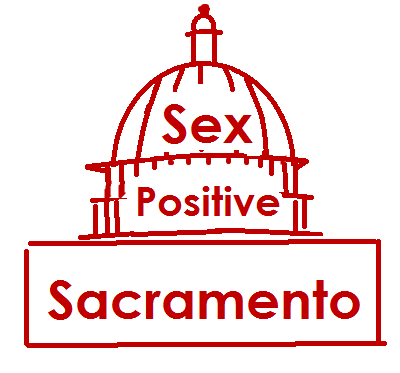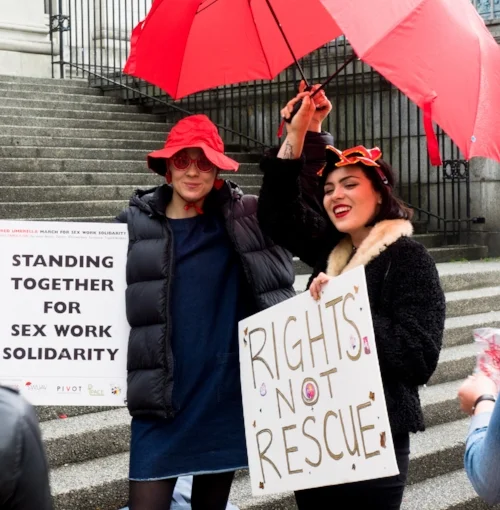by Heather Woodford, LCSW, SFSI-certified sex educator
All professional therapists - and most people in general - know that it’s unethical for a therapist to have a sexual relationship with a client.
In fact, the Board of Behavioral Sciences in California publishes a pamphlet (and webpage) called “Therapy Never Includes Sexual Behavior.” The pamphlet is primarily intended to be given to a person when they share with a professional that their therapist has participated in or solicited a sexual relationship with them. Whether the client or the therapist was the initiator of the sexual encounter(s) does not matter - therapists should never participate.
We as mental health & social service professionals work with clients around every problem related to the mental, emotional, relational, social, and economic resource realm you can imagine. Homelessness. Death. Grief. Divorce and heartbreak. Justice system involvement. Codependence. Discrimination, oppression, marginalization. Abuse. Severe mental illness. Drug and alcohol use. Trauma. Surviving war and relocation. Coming out as gay or transgender. The list goes on!
So if you’re not a mental health professional, you’d probably assume that this pamphlet is merely one among many published by the Board, that we’re encouraged to use as a resource. But it’s actually the single BBS publication specifically referred to in our licensing exam. And it’s the only publication we’re ever explicitly directed to share with a client.
The fact that this pamphlet exists is a good thing, on its surface. Education and resources that encourage people to know their rights and care for themselves are always helpful, right?
But an examination of The Pamphlet’s role reveals quite a bit about us as a profession - and more broadly, as a culture.
I have questions. Why is this issue specifically singled out? What does it say about our culture’s avoidance and fear of sex that we require a pamphlet for this issue, but not others? Why do put so much heavy lifting on this little publication? Why do we assume that this one issue is the one in which therapists do not have the capacity or willingness to talk a client through without the use of a pamphlet - when the literal definition of a therapist is person-who-talks-you-through-difficult-situations?
Here are some of the implicit messages around The Pamphlet:
1. Somehow sexual touch is in a special category of harm when it comes to ethics violations.
2. We as a society are so afraid of the power of sex that we can't even bring ourselves to properly train therapists to talk about it, and/or to trust them to talk about it without requiring the use of a pamphlet.
And why do we assume therapists are somehow unable or unwilling to educate or support clients around issues of consent, coercion, and abuse when it comes to sex - when, again, practicing and modeling relational skills and healthy boundaries are a cornerstone of professional therapy? True, that if a therapist is engaging in coercive or harmful behavior with a client the problem is already occurring - but is THIS the specific therapist we’re trusting to give The Pamphlet to the client? If so, we’re in for disappointment. And if not - if a client is reporting this egregious behavior to a different therapist - don’t we need to implicitly trust that THIS therapist will be skillful and ethical? Why The Special Pamphlet now?
And why don’t we trust therapists to discern between CONSENSUAL sexual experiences and COERCIVE sexual experiences - without the use of The Pamphlet? Is it because we know we’re not thoroughly training professionals in areas of consent, sex and sexuality? Is it because we as a society are afraid and avoidant of talking about sex?
I believe MFT's usually take a sexuality class during their graduate training, but every single piece of sexuality training I received as someone training to become a licensed clinical social worker was something I sought out on a purely voluntary basis - with the exception of a brief read-and-regurgitate pre-licensure CEU type training on human sexuality through the NASW's website, and some components of the mandated reporter training on abuse. To call this anywhere approaching competence in human sexuality would be laughable. I can't speak for other therapy training programs, but I know that LCSWs are NOT trained in how to approach conversations involving sex, sexuality and consent as a matter of course.
In a thesis project study conducted by my colleagues Miriam Yelton Duston and Natalie Delfin (2014) revealed that MSWs & LCSWs show poorer knowledge and comfort around sexuality relative to their LMFT and LPCC peers. And in my experience of providing consulting and training for folks generally across license type, many feel uncertain in these realms.
Fair enough that there is A LOT to fit into a graduate program and post-grad training. Fair enough that disciplines and programs vary by what they prioritize. But if a professional therapist can't navigate a conversation involving the difference between abuse, coercion, and consensual sexual relationship - as well as walking the client through a conversation around WHY and HOW an intimate relationship between a client and therapist (regardless of sex) is/would be inappropriate, then I'm not convinced a pamphlet is going to do the trick. What we as professionals need is a greater level of comfort, competence, and knowledge around these areas in order to have these conversations with our clients. The fact that our profession does not require this level of training, but requires us to use a pamphlet, would be laughable if it weren't indicative of so much implicit harm we do through incompetence around sexuality.
To me, this speaks to the sex negativity that's baked into us as products of this culture. We as individual professional therapists, and we as a profession, certainly do not escape this. We are so afraid of and avoidant of sex, that it seeps into our training - whether explicitly or implicitly.
Also, unpopular opinion here, but I'm not convinced that some guided sexual self-touch, as an additional layer to our otherwise well-boundaried, structured, therapeutic interventions would always be explicitly inappropriate in a therapeutic context. I deeply admire and respect the work that sexological body workers and pelvic floor therapists do. What if we could take and implement a competence training around physical touch to heal sexual harm? If we could incorporate some of these exercises (obviously without stepping outside our scope of practice and competence) imagine how much more holistic our work as talk therapists could be. Imagine how much more well-rounded the client's healing could be. I'm not trained in these realms, and it would not be worth it to me to risk my license in that way given our current professional constraints - but imagine a world with somewhat more permeable barriers around how we define healing, and what interventions we could support our clients with. What if we didn't put sex into a weird, sealed off tower like Rapunzel? What if we didn't (intentionally or unintentionally) reinforce messages of sexual shame by preemptively deciding that body parts, and touching them, is "inappropriate"? What if we allowed sex and the entire body to enter the room more? What if we could build bridges with other professions such as pelvic floor therapy and body work to cross-pollinate our knowledges? We already lead clients through progressive muscle relaxation, and mindfulness exercises. We role play emotionally charged scenarios so clients can practice setting boundaries. We take clients through the terrain of their trauma via insight-oriented therapy and EMDR. Clients trust us with their emotional healing, allowing us to witness them in states they may not ever allow others to witness them in. Clients already trust us not to use what we know about them against them in a harmful way.
What if we could use the therapeutic relationship to also help them through some of the physical aspects of sexual healing? We are already beholden to a licensing body that ideally holds us accountable to not harming our clients. What if we as a society decided that explicit sexual touch, when provided by a competent, ethical professional, could not only not be inherently harmful - but could actually be clinically appropriate and therapeutic? What if we lived in a society that did not criminalize sexual touch when it involves commerce or exchange of money? And what if we as therapists decided that we as a profession were brave enough to challenge laws, policies, and regulations that state otherwise?
Additionally - what is it about sex and sexual abuse that SINGULARLY compels the BBS to prioritize the use of this pamphlet? Can therapists not do harm through other means as well? What about the ethics of terminating with a client who can't pay your fee anymore - and yes, I know, we're compelled to work with them as much as possible and then refer out - but doesn't this cause harm and reify existing classism? Isn't the implicit message "if you can't start affording my fees again in the relatively near future, you aren't worth my time"? In my private practice, my employees and I intentionally plan for a broad spectrum of sliding scale options, including proactively planning for flexibility in our existing case load so we can weather a storm if several clients need to drastically reduce their fees or go entirely pro bono. (It hurts my heart to turn people away from the get-go - but I'd rather start with higher rates and then provide flexibility for existing clients because terminating with people due to money is a form of harm.) But I was never explicitly trained on how to create a fee structure that does not cause harm to my clients, and I have no idea whether other therapists do that. Is there a pamphlet about "professional therapy never involves abandonment because you got divorced or lost your job"? No.
Why are we not compelled/required to know about and give our clients a publication called "professional therapy never involves dual relationships"? Why not "professional therapy never involves emotional abuse" or "professional therapy should explicitly address systemic racism"?










